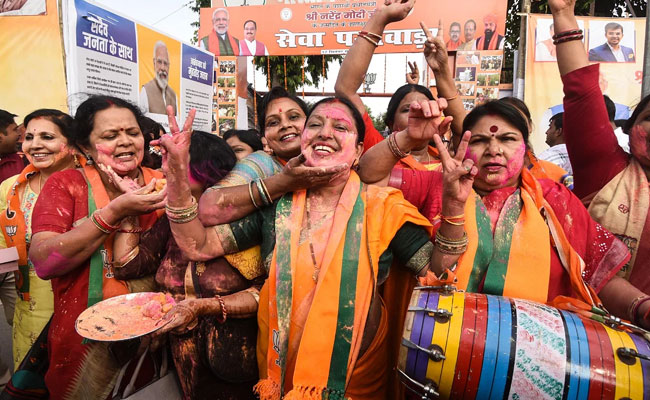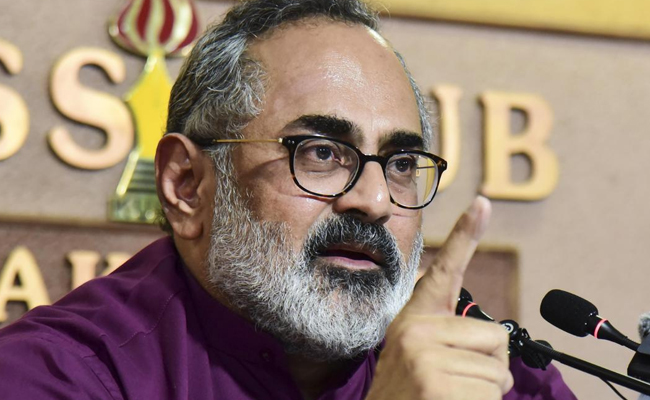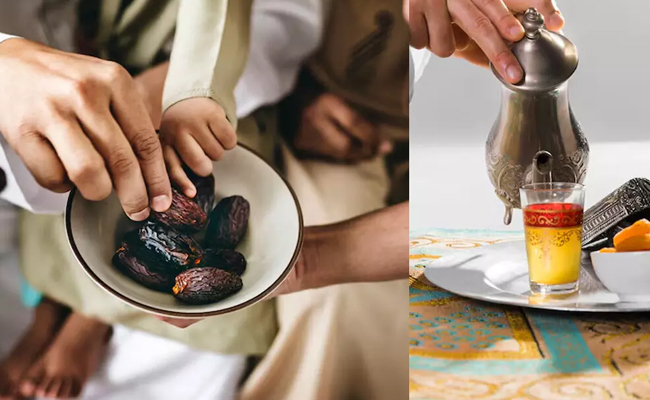New Delhi (PTI): The number of women MLAs in Chhattisgarh, Telangana, and Madhya Pradesh assemblies remains much below the one-third mark, as provided under the women's reservation bill passed by Parliament recently, data compiled by think tank PRS Legislative Research said.
Their number in Chhattisgarh, Telangana and Madhya Pradesh assemblies has gone up marginally, while it has gone down in Rajasthan, the data said.
Chhattisgarh scores the highest among all four states with 21 per cent of its newly elected lawmakers women.
In 2018, Chhattisgarh had 13 women MLAs, 14 per cent of the total, which has gone up to 19 women now.
In Telangana, the number of women MLAs went up to 10, or 8 per cent of the total. In 2018, the state sent six women to its assembly.
In Rajasthan, the number of women MLAs was 24 in 2018, which came down to 20 this time. Their number in Rajasthan assembly has never exceeded 15 per cent, the report said.
In Madhya Pradesh, 30 women were elected to the assembly in 2013, while in 2018, only 21 women could find a place in the House. This time, the state has elected 27 women.
The number of older MLAs also remains high in all assemblies, with Chhattisgarh, MP, and Telangana seeing their assemblies grow older.
In Chhattisgarh, the proportion of MLAs above the age of 55 years is 41 per cent in the new assembly.
In 2008, the state had 16 per cent of MLAs above this mark, with the number going up to 29 per cent in 2013, and to 40 per cent in 2018.
In MP, 50 per cent of MLAs are above the age of 55 this time. This proportion was 38 per cent in 2018, 30 per cent in 2013, and 21 per cent in 2008.
In Rajasthan, in 2018, 48 per cent of the elected members (95 out of 200), were above 55. The proportion has marginally decreased in the new Assembly, settling at 46 per cent.
In Telangana, the average age of the newly elected MLAs is 56. The proportion of MLAs above 55 there has increased from 39 per cent in 2018 to 60 per cent in 2023.
When it comes to education, in Chhattisgarh, the proportion of MLAs with at least a graduate degree has reduced from 69 per cent in 2018 to 59 per cent in 2023.
In MP, the proportion of MLAs with graduation degree was 44 per cent in 2018.
It has come down to 36 per cent in the latest assembly, while the number of post-graduates has gone up from 27 per cent to 35 per cent.
A majority of the MLAs in Rajasthan have a graduate degree. In 2018 more than half of the elected women and about a quarter of the elected men were post-graduates. The proportion remains similar in 2023.
In Telangana, 72 MLAs elected in 2023 have at least a graduate degree. This is 15 per cent lower than the number in 2018, when it was 85.
Let the Truth be known. If you read VB and like VB, please be a VB Supporter and Help us deliver the Truth to one and all.
Judge cites denial of home to Muslim girl, opposition to Dalit women cooking mid-day meals
Hyderabad, February 23, 2026: Supreme Court judge Justice Ujjal Bhuyan has said that despite repeated affirmations of constitutional morality by courts, deep societal faultlines rooted in caste and religious discrimination continue to shape everyday realities in India.
Speaking at a seminar on “Constitutional Morality and the Role of District Judiciary” organised by the Telangana Judges Association and the Telangana State Judicial Academy in Hyderabad, Justice Bhuyan reflected on the gap between constitutional ideals and social practices.
He cited a recent instance involving his daughter’s friend, a PhD scholar at a private university in Noida, who was denied accommodation in South Delhi after her surname revealed her Muslim identity. According to Justice Bhuyan, the landlady bluntly informed her that no accommodation was available once her religious background became known.
In another example from Odisha, he referred to resistance by some parents to the government’s mid-day meal programme because the food was prepared by Dalit women employed as cooks. He noted that some parents had objected aggressively and refused to allow their children to consume meals cooked by members of the Scheduled Caste community.
Describing these incidents as “the tip of the iceberg,” Justice Bhuyan said they reveal how far society remains from the benchmark of constitutional morality even 75 years into the Republic. He observed that while the Constitution lays down standards of equality and dignity, the morality practised within homes and communities often diverges sharply from those values.
He emphasised that constitutional morality requires governance through the rule of law rather than the rule of popular opinion. Referring to the evolution of the doctrine through judicial decisions, he cited Naz Foundation v Union of India, in which the Delhi High Court read down Section 377 of the Indian Penal Code, holding that popular morality cannot restrict fundamental rights under Article 21. Though the judgment was later overturned in Suresh Kumar Koushal v Naz Foundation, the Supreme Court ultimately restored and expanded the principle in Navtej Singh Johar v Union of India, affirming that constitutional morality must prevail over majoritarian views.
“In our constitutional scheme, it is the constitutionality of the issue before the court that is relevant, not the dominant or popular view,” he said.
Justice Bhuyan also addressed the functioning of the district judiciary, underlining that trial courts are the first point of contact for most litigants and form the foundation of the justice delivery system. He stressed that due importance must be given to the recording of evidence and adjudication of bail matters.
Highlighting the role of High Courts, he said their supervisory jurisdiction under Article 227 of the Constitution is intended as a shield to correct grave jurisdictional errors, not as a mechanism to substitute the discretion or factual appreciation of trial judges.
He recalled that several distinguished judges, including Justice H R Khanna, Justice A M Ahmadi, and Justice Fathima Beevi, began their careers in the district judiciary.
On representation within the judicial system, Justice Bhuyan noted that Telangana has made significant strides in gender inclusion. Out of a sanctioned strength of 655 judicial officers in the Telangana Judicial Service, 478 are currently serving, of whom 283 are women, exceeding 50 per cent representation. He added that members of Scheduled Castes, Scheduled Tribes, minority communities, and persons with disabilities are also represented in the state’s judiciary.
He observed that greater representation of women, marginalised communities, persons with disabilities, and sexual minorities would help make the judiciary more inclusive and reflective of India’s diversity. “The judiciary must represent all the colours of the rainbow and become a rainbow institution,” he said.
Justice Bhuyan also referred to the recent restoration by the Supreme Court of the requirement of a minimum three years of practice at the Bar for entry-level judicial posts. While acknowledging that the requirement ensures practical exposure, he cautioned that its impact on women aspirants, especially those from rural or small-town backgrounds facing social and financial constraints, would need to be carefully observed over time.
Concluding his address, he reiterated that the justice system must strive to bridge the gap between constitutional ideals and lived realities, ensuring that the rule of law remains paramount.




